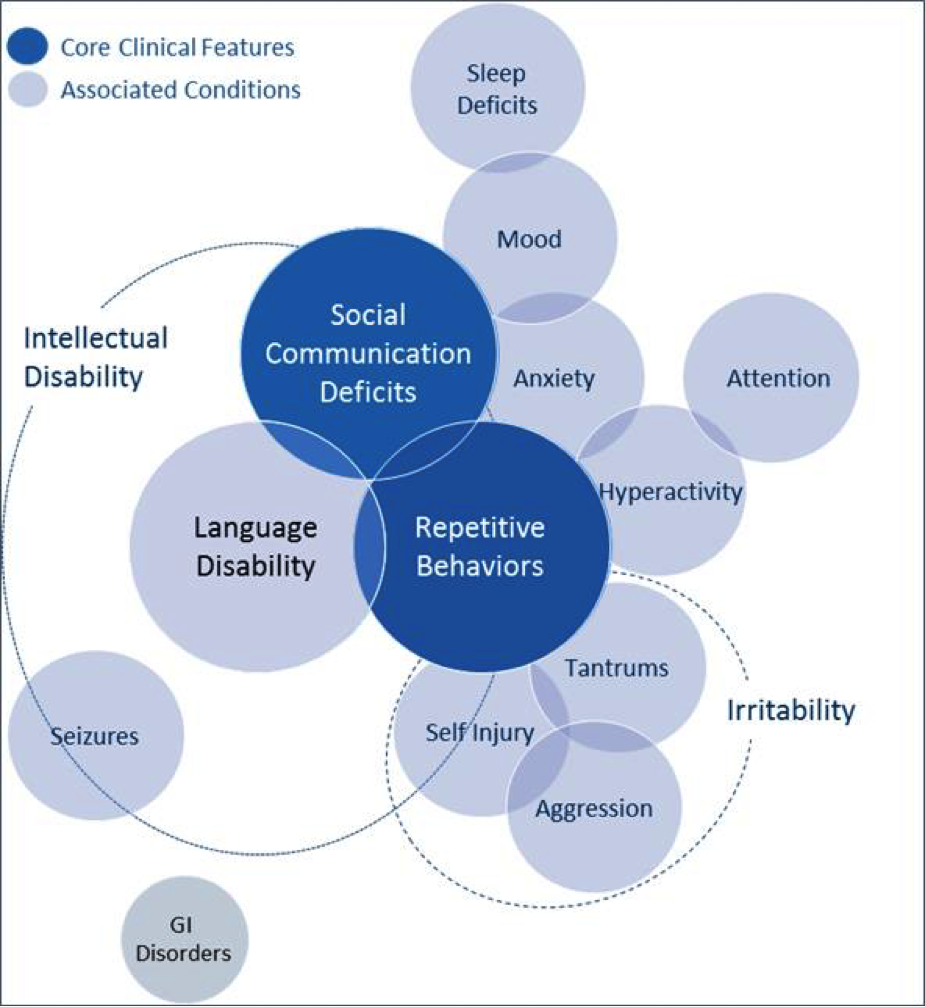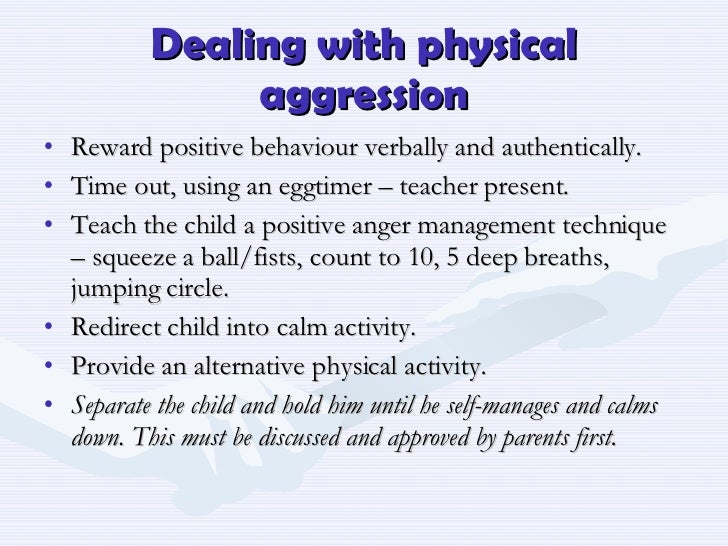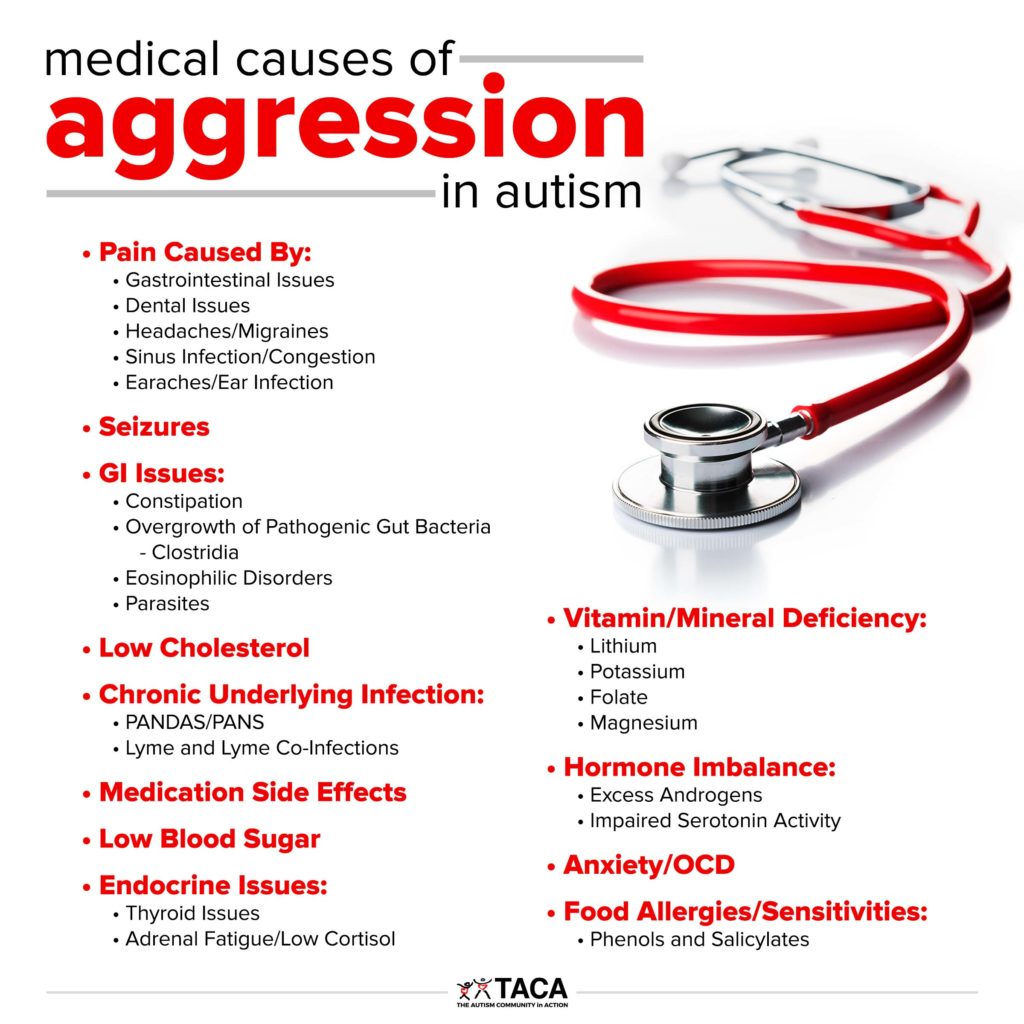In the aggression which is accompanied by autism the children can harm themselves as well as damage the people and objects around them. Aggressive behavior is a very serious problem for children with autism spectrum disorders ASD.
 Calameo Autism And Children Aggression In Autistic Children
Calameo Autism And Children Aggression In Autistic Children
Aggression in people who have autism differs in some ways from aggressive behavior in other people.

Autism and aggression. It can lead to difficulties at school and home and result in harm to the child and others. It is one of the most difficult situations for parents. Also look at whether the hit is with an open hand or a slap or.
There is no evidence indicating aggression is a sign of autism. Whatever their age some individuals on the autism spectrum act out aggressively and clearly this can be distressing for everyone involved. Males tend to be more aggressive in the general population but aggression is equally common in males and females who have autism Mazurek says.
Children with ASD frequently have co-occurring comorbid psychiatric conditions with estimates as high as 70 to 84 percent. Autistic children sometimes express their emotions through aggressive behaviour towards others. One study published 1 September in Research in Autism Spectrum Disorders found that one in four children with autism shows aggressive behavior such as hitting others destroying property or throwing temper.
Some kids hit walls others hit their own heads. Aggression in Autism Spectrum Disorders ASD by Lee A. Aggression and anger attacks in children with autism are mostly significant between 2 and 5 years of age.
With therapy and supports in place parents are often able to find resources in their region for support addressing the specific areas of concern. Many children with autism can exhibit aggression. Learning and language problems have been associated with aggression in the general population.
Autism spectrum disorder ASD is a neurodevelopmental disorder characterized by persistent difficulties in social communication and social interaction coupled with restricted repetitive patterns of behavior or interest. Aggression is an active behavior rather than a reactive one. Sometimes their aggressive behaviour can be directed towards themselves.
An individuals aggression can be directed at hisherself or others and can be scary for everyone involved. This aggression often manifests as unexpected outbursts of biting scratching kicking hitting or throwing. In fact aggression is among the most common challenges reported by parents of children and adolescents with autism.
However people with autism rarely target or confront other individuals in the same manner a non-autistic person would. In fact many autistic children exhibit aggression as a symptom of their condition. In a study out of Canada researchers followed 15 families of male children and young adults with varying levels of autism.
Aggression is a clinically significant feature of many children and adolescents with autism spectrum disorders ASD. Not every child with autism displays aggression. Autism is a global developmental delay that affects speech communication social skills self awareness impulse control and the ability to identify emotions and read body language.
Aggression was her way of communicating her needs. This is called self-injurious behaviour. Little clinical data exists to show how often aggression is observed in children with ASD but reports from parents teachers and other professionals suggest that aggression is not uncommon.
Aggression can be directed outwardly toward caregivers or peers or it can be self-directed in the form of self-harm. Aggression in children with autism can take many forms such as hitting kicking scratching biting or destroying property. The overall prevalence is high according to a clinical study.
How often does the child hit. This aggression often manifests as unexpected outbursts of biting scratching kicking hitting or destroying property. Two new studies explore the link between autism and aggression a controversial connection that weighs heavily on individuals with the disorder and their families.
Autism and Hitting. Addressing Aggressive Behaviors in Children on the Autism Spectrum Although there have been few large-scale studies examining the prevalence of aggression in children with autism spectrum disorder it is estimated that around 50 of children and adolescents on. By Shaun Heasley January 23 2013 Though aggression is not typical of everyone with autism new research suggests that it affects many with the developmental disorder and brings significant and often lifelong challenges.
Anger and aggression can be one of the most problematic issues related to autism. Who or what is the child hitting. A childs aggression can be directed at self or others and can be scary for everyone involved.
Kids could also hit their siblings or teachers. They might hit kick throw objects or hurt themselves for example by head-banging. With any behavior we want to decrease especially physical aggression it starts with an assessment.
1 Children with ASD may present with additional maladaptive behaviors including aggression self-injury and severe tantrums also referred to in this text as.
:max_bytes(150000):strip_icc()/what-is-severe-autism-260044-Final-1624a05bc38f43faa1b2d3e0e42f8d3d.png) Severe Autism Symptoms And Challenges
Severe Autism Symptoms And Challenges
 Background Theory Alleviate Children S Health Issues Through Games And Machine Learning
Background Theory Alleviate Children S Health Issues Through Games And Machine Learning
 Autism Aggressive Behavior How To Manage Your Child S Aggression Autism Parenting Magazine
Autism Aggressive Behavior How To Manage Your Child S Aggression Autism Parenting Magazine
 When Autism Is Holding Aggression S Hand Autism Parenting Magazine
When Autism Is Holding Aggression S Hand Autism Parenting Magazine
 Dealing With Autism Presentation
Dealing With Autism Presentation
 Understanding Aggression In Autism Youtube
Understanding Aggression In Autism Youtube
 Aggression Autism Speaks Autism Treatment Network
Aggression Autism Speaks Autism Treatment Network
 Medical Causes Of Aggression In Autism The Autism Community In Action Taca
Medical Causes Of Aggression In Autism The Autism Community In Action Taca
 Meltdowns And Aggression In Children With Autism I Kennedy Krieger Institute Youtube
Meltdowns And Aggression In Children With Autism I Kennedy Krieger Institute Youtube
Aggression A Struggle For 50 With Autism Ahss
 When Autism Is Holding Aggression S Hand Autism Parenting Magazine
When Autism Is Holding Aggression S Hand Autism Parenting Magazine
 Understanding Aggression In Autism Spectrum Autism Research News
Understanding Aggression In Autism Spectrum Autism Research News
 Aggressive Behaviour Autism 3 18 Years Raising Children Network
Aggressive Behaviour Autism 3 18 Years Raising Children Network
Aggression In Low Functioning Children And Adolescents With Autistic Disorder

No comments:
Post a Comment
Note: Only a member of this blog may post a comment.